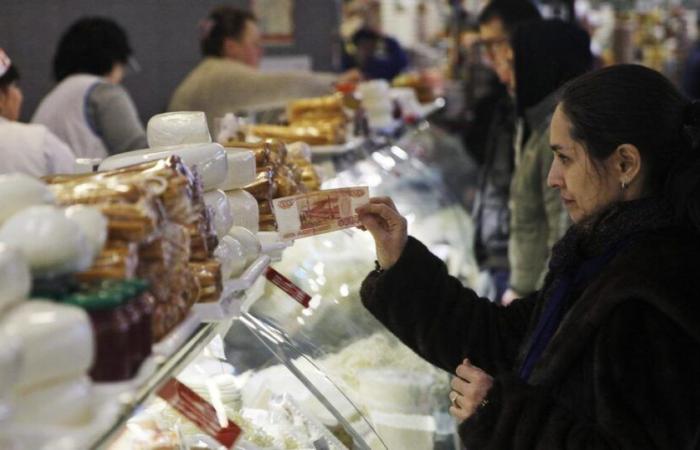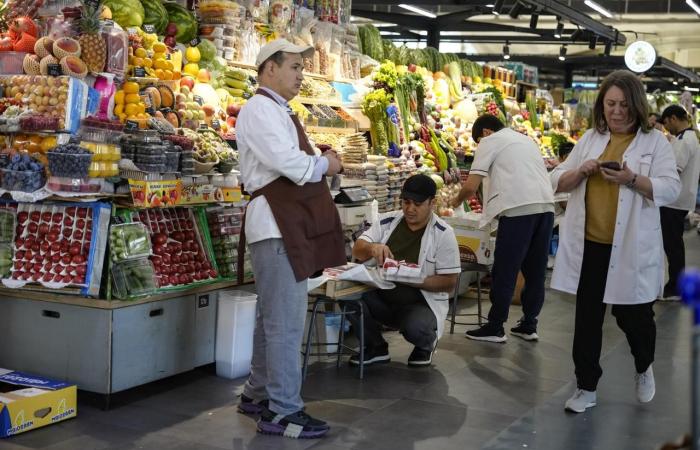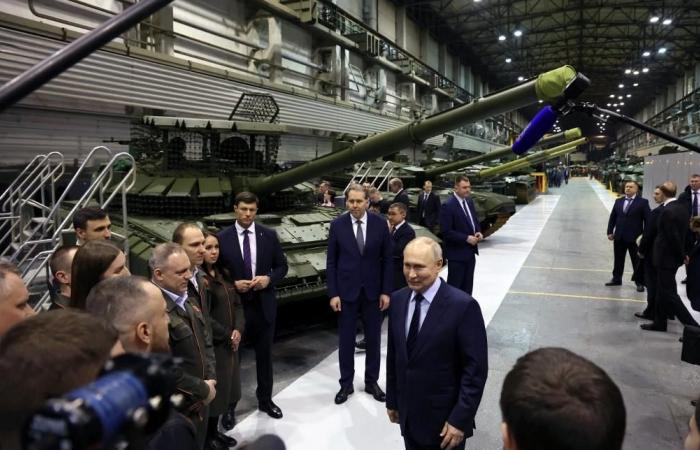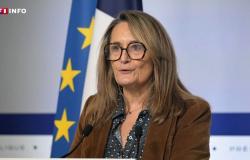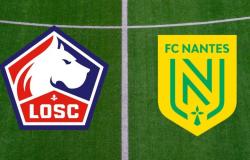The war in Ukraine and the general situation it causes, particularly due to sanctions, are weighing on the economy in Russia, where inflation reached 9% this year. The prices of many staple foods have skyrocketed.
For a foreign journalist, getting Russians to speak into a microphone to explain to what extent they are affected by rising inflation in a market is rather complicated.
On the other hand, it is much easier to obtain the description of a perfect New Year’s meal: “Traditionally, it is an Olivier salad (what we would call here a Russian salad, editor’s note.), herring in a fur coat (a traditional dish served during the Holidays, editor’s note.) We also have jellied meat, different slices of sausage. Oranges, tangerines, fruits are also traditionally on the table. And champagne,” explains Muscovite Lydia at the microphone of Tout un monde on Tuesday.
Average increase of 9%
But over one year, the price of tangerines increased by 18%, that of butter by more than 30%, that of potatoes by 64%. Enough to increase the cost of the Olivier salad like that of the herring in a fur coat. Not to mention the 7-fold increase in the price of red caviar in 20 years, the price of which per kilo exceeds 55 francs.
Lydia modestly sums up: “Even with such prices, New Year is a holiday that must be celebrated to welcome the year in good spirits and with the hope that everything will go well with us.”
Many staple foods are affected by high inflation. The average price increase is around 9% despite the efforts of the Russian Central Bank to try to contain it. The situation is unprecedented since 2003.
Labor shortage
According to economists, the difficulties facing the Russian economy have several causes, but all of them are linked to the war in Ukraine. Western sanctions are one reason, but the other, labor shortage, is no less important.
The lack of workers in the private sector is not a new thing, it is in fact a characteristic of the Russian economy that stems from the so-called “lost decade” – the years of the Yeltsin presidency spanning the 1990s. – when the birth rate collapsed due to the uncertainties created by the fall of the Soviet Union and the wild capitalism it engendered.
Collateral effects of war
And since February 2022 and the start of the war in Ukraine, this lack of manpower has been exacerbated for three reasons: the departure for the front of several hundred thousand men, the flight to foreign countries of a few hundred thousand skilled workers and exacerbated competition from companies in the military-industrial complex which needs labor to increase its production.
![Vladimir Putin visits Russia's largest tank factory, at Uralvagonzavod in the Urals. [AFP - ALEXANDER KAZAKOV] Vladimir Putin visits Russia's largest tank factory, at Uralvagonzavod in the Urals. [AFP - ALEXANDER KAZAKOV]](https://euro.dayfr.com/content/uploads/2025/01/01/1d3ad76ee4.jpg)
Finally, the Russian state spends lavishly to support its war effort. Between 2021 and 2025, budgeted spending is up 67.5%, which also contributes to fueling inflation.
Interest rate over 25%
Although we cannot speak of a collapse in Russian growth, it could nevertheless experience a clear slowdown in 2025 – some forecasts indicate growth of just over 1%. The origin of this sharp decline in growth stems from the differential between inflation around 9% and interest rates for loans to consumers and businesses oscillating between 25 and 30%.
The high cost of borrowing – and therefore of investments – should therefore slow down the economy. For example, the Russian State Railways has already announced that it will reduce its investments by almost 40% next year. By extension, many wonder how private companies that have no reason to go into debt to invest will be able to repay their loans.
Fear of “stagflation”
To put an end to these economic difficulties, Russia would do well to end the war in Ukraine next year. But an economic reality is not necessarily a political reality. If the economic elites are worried and fear “stagflation” – high inflation coupled with low economic growth – the executive remains optimistic.
President Vladimir Putin believes that the Russian economy can still resist, for three reasons: the federal budget deficit is very low, non-oil and gas revenues are increasing and Chinese investors are arriving en masse to replace Westerners. . But despite this, it is the outcome of the conflict in Ukraine which will determine the future of the Russian economy.
>> Read also: Vladimir Putin says Russia should have attacked Ukraine ‘sooner’
Subject and radio report: Jean-Didier Revoin
Adaptation website: Katharina Kubicek

